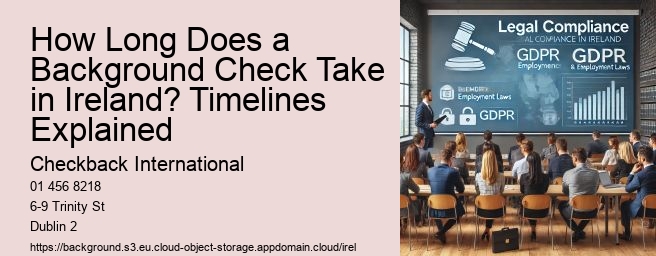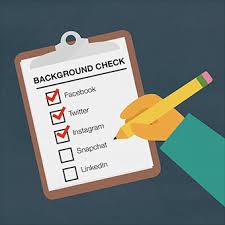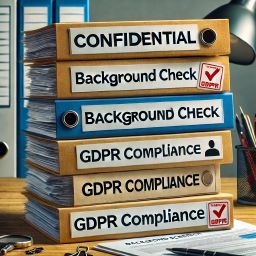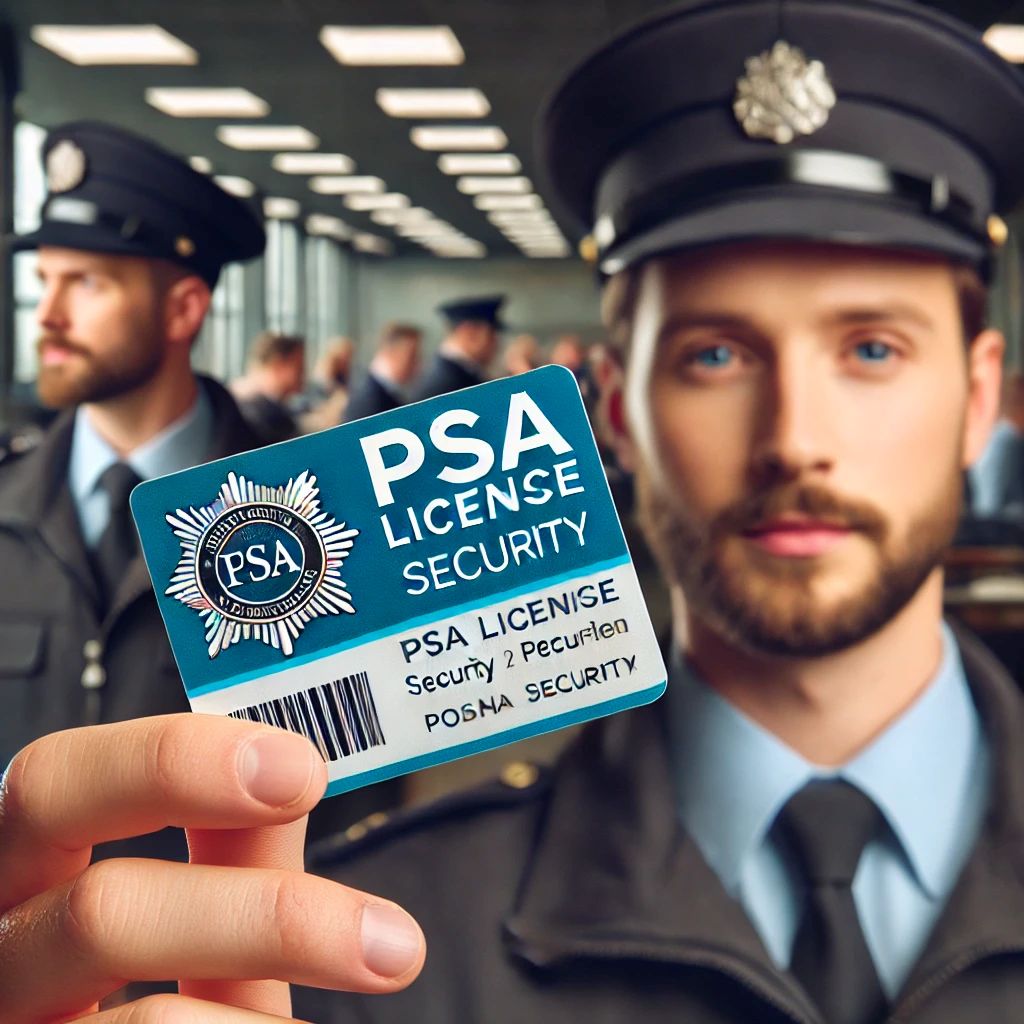

What Happens if a Candidate Disputes the Findings of Their Background Check?
Online applications make the process simpler for candidates while meeting PSA guidelines.
The application process combines results from various jurisdictions including Garda, DBS, and Department of Justice checks through a single European form.
2.Companies must keep detailed records of data processing activities, implement appropriate security measures, and establish retention periods.
Companies performing background checks implement robust data protection systems and maintain clear policies on handling candidate information during the screening process.
2.Employment History Verification: Examines candidate work history to confirm accuracy.
The standards influence current and future practices in background checking processes.
These background screenings follow legal requirements and include checks of criminal records, education, and work history. Modern technology has made these verification processes more efficient and accurate, changing how organizations conduct these necessary reviews.
Organizations should maintain consistent vetting procedures across all applicants while adapting to specific role requirements.

European Cross Border checks need additional time, especially for people who lived in multiple countries. Organizations can speed up the process when candidates submit complete information and quickly provide any additional documents requested by vetting agencies.
3.Work with accredited screening providers who can complete European Criminal Record Checks (ECRC) and credit verification within set turnaround times.
These checks help confirm that candidates meet trustworthiness and safety requirements in sensitive sectors like finance and healthcare.


This process helps with background checks of candidates who have lived in any of the 26 participating EU states.
The screening company must provide these records within a timeframe of 30 days.
Through access to multiple criminal records via a single centralized system, the ECRC supports security and compliance standards, helping Irish businesses hire qualified individuals from various EU countries while maintaining thorough background verification.

Checkback International offers multiple ways to get in touch. The office operates Monday through Friday from 9:00 AM to 6:00 PM.
2.Cross-border employment verification includes CV authentication services that check work experience across European institutions.
Service providers charge different rates, and faster processing times cost more. Organizations can expect varied expenses based on their requirements for each candidate.
Directorship Check
Can an Individual Request Their Own Background Check Report?
This process helps create safer workplaces and reduces hiring risks. The checks also support companies in meeting P.S.A. standards and other industry requirements, making them valuable for Irish businesses.
The Private Security Authority (PSA) acts as the main regulatory body for background checks in Ireland under the Private Security Services Act 2004. The PSA sets vetting standards through licensing requirements, including PSA 74:2019 for security service providers and PSA 42:2015 for private investigators.
A background check in Ireland involves reviewing a person's criminal, financial, or personal records to assess their suitability for a role or position.
The duration can vary but typically takes between 1-2 weeks, depending on the type and complexity of the check.
Garda vetting is a specific type of background check required in Ireland for individuals working with children or vulnerable adults, involving checks against police records.
Yes, you must obtain consent from the individual before conducting any background checks in Ireland.
Not for all employees, but certain sectors such as healthcare and education may require comprehensive checks.
It includes checking for any criminal convictions or offences recorded against the individual.
Yes, individuals can request their own background checks in Ireland for personal review or to prepare for employment screenings.
Skipping background checks can lead to hiring unsuitable candidates, which may result in legal and reputational risks.
Yes, police clearance is a general criminal record check, while Garda vetting is specific to roles involving vulnerable groups and includes more detailed investigations.
You can request transcripts or degrees directly from educational institutions or use third-party services that specialize in educational verifications.
Information about spent convictions, certain types of personal data, and other protected characteristics under GDPR is off-limits unless specifically relevant and lawful to access.
International checks may involve additional complexities such as different laws, languages, and longer processing times.
No, background checks do not affect your credit score as they do not involve a credit inquiry that would impact the score.
Best practices include securing data in compliance with GDPR, limiting access to authorized personnel, and ensuring data is stored for only as long as necessary.
It depends on the industry and role, but typically every 2-3 years or when significant changes occur in the individual’s role or responsibility.
While not specific by law, many IT positions require checks due to access to sensitive or proprietary information.
GDPR regulates the processing of personal data, ensuring that background checks are conducted in a lawful, fair, and transparent manner.
Yes, but it must be done lawfully and with the individual’s consent, considering the relevance to the role.
Penalties can include fines, legal actions, and reputational damage, depending on the severity of the non-compliance.
Remote work has increased the importance of thorough background checks, especially for those in positions of trust or handling sensitive data.
Best practices include conducting similar checks as for permanent staff, especially if they have access to sensitive or critical areas.
Ensuring fairness involves following consistent procedures, obtaining consent, and allowing candidates to dispute inaccuracies.
Yes, it’s recommended to tailor background checks based on the specific risks and requirements of each position.
Signs include transparency about services, compliance with legal standards, positive reviews, and strong data protection practices.
Handling involves assessing the relevance to the job, discussing findings with the candidate, and considering legal and ethical implications.